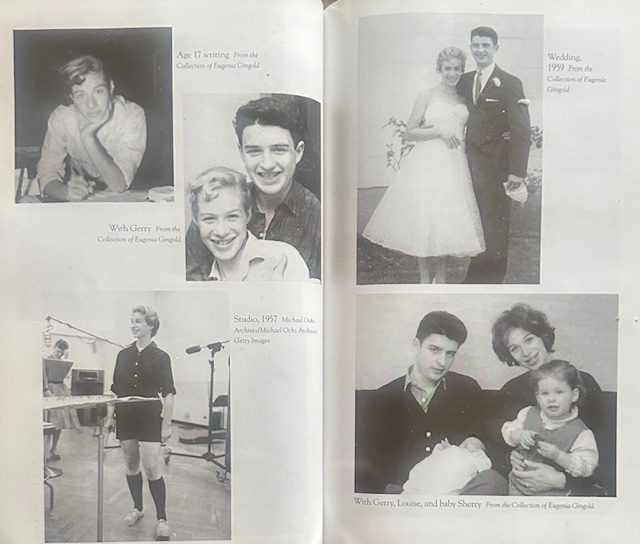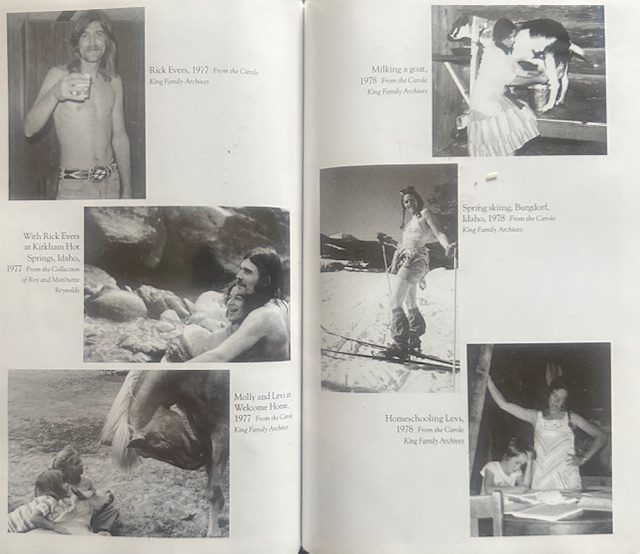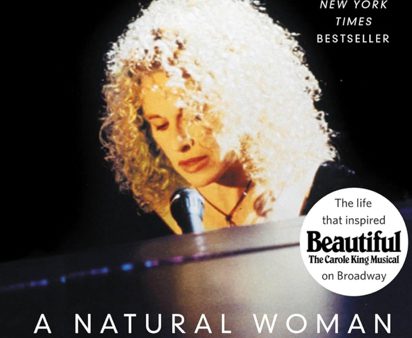Casual notes on show-biz books, memoirs and studies, dust gatherers and hot off the presses.
Book Review by Samuel L. Leiter . . . .
3rd edition:
Carole King, A Natural Woman: A Memoir (New York: Grand Central Publishing, 2012). 488pp.
It’s taken me a dozen years to get around to Carole King’s absorbing memoir, A Natural Woman, despite my best intentions. Having seen Beautiful, the 2013 hit Broadway musical about her life, twice, I was not in a hurry to read an even fuller biography about her. However, a get-together after too long a time with my good friend, legendary sitcom director (not to mention My Big Fat Greek Wedding) Joel Zwick, followed by my spotting an inexpensive used copy on Amazon, were strong incentives to give the book a look. Joel, you see, knew King well, when, as Carol Klein, she was a schoolmate at Brooklyn’s Shell Bank Junior High School and Madison High School, back in the 50s.
In her book, the great songwriter-singer, referring to the most iconic rock and roll DJ of the 50s, writes, “My introduction to Alan Freed’s music came through a fellow student at Shell Bank. When I met Joel Zwick in homeroom I was delighted that he was only a month older than I. Our shared affinity for music and theater was evident as we cavorted around the stage of the school auditorium in colorful costumes in extraordinary productions of . . . Gilbert and Sullivan.” Joel not only took the future superstar to see Freed at the Brooklyn Paramount, where Freed emceed his famous rock and roll extravaganzas but later sang with the Cosines, a quartet King created during her high school days. (She’d begun at Madison, transferred to the High School of Performing Arts, and, for several reasons, returned to Madison.)

Reading about Joel’s connection to King—some of it new to me despite a friendship going back to Brooklyn College at the turn of the 60s—was only one of many pleasures I found in A Natural Woman, which reads much faster than its thickness might suggest. Her tome, which took 12 years to write, offers a wonderful portrait of King’s growing up in Brooklyn’s Sheepshead Bay in the 40s. She was the musically precocious kid—piano lessons at four—of two middle-class Jewish parents: her father a fireman, her mother a musically talented amateur actress and director. Her mother was also instrumental in getting King on TV talent shows, like “The Horn and Hardart Children’s Show.” A younger brother, sadly, was born both deaf and mentally handicapped, the pressures from which may have contributed to her parents’ divorce.
King was born in 1942, a little less than two years after me, but her recollections of the period—including the importance of the radio—closely match my own. At one point she notes that “A remarkable number of kids from my generation who attended high schools in Brooklyn went on to achieve success in music, film, TV, literature, journalism, theater, and the visual arts.” I was sorry, though, that her only allusions—and they’re passing ones—to Brooklyn-born, Jewish pop singers of her generation (a fetish of mine!) are to Neil Sedaka and Barbra Streisand. She neglects to mention their shared geographical/religious connection and says not a word about Neil Diamond, Lou Reed, Lainie Kazan, Barry Manilow, and others of their ilk.
One of the book’s many positives is King’s summaries of the cultural highlights in each decade in her life’s decades, setting the background for the personal events she goes on to describe. Those overviews, naturally, allow her to characterize the significant achievements in music, but also the ways in which the music business was changing, including the introduction of improved ways of recording. A Natural Woman, in fact, is as much a layman’s guide to the shifts in pop music over the decades as it is to Carole King’s life.


An avid student, whose public school promotions put her two years ahead of her classmates, she was forced because of career and family obligations to drop out of Queens College, where she went after her family moved to Queens. Had she gone, as originally intended, to Brooklyn College, I’d likely have gotten to know her.
King began to write hit songs when she was in her mid-teens, introducing herself to studio executives and gaining employment with major labels. At 17, she married her first of four husbands, the talented lyricist Gerry Goffin, whom she met at Queens College; her only Jewish spouse, Goffin was two years older than King, but the men who came afterward were all younger, some significantly so.
As in any celebrity memoir, numerous famous names and associated anecdotes are dropped as we, the curious public, learn private things about idols we might otherwise never have known. We hear, for example, cool stories about the Beatles, especially John Lennon and Yoko Ono and Paul and Linda McCartney, Bono, Elvis Presley, Paul Simon, Bob Dylan, Joni Mitchell, James Taylor, Bruce Springsteen, and Paul Newman. We follow King’s career arc from songwriter and backup singer, musician, and arranger to star soloist, a transition she was actually not interested in making (“I didn’t want to be a star”), preferring to remain in the background.
King writes fluidly about the New York subways, the creation of her greatest songs and albums (especially the one called Tapestry), her charitable activities, her environmental and liberal activism for civil rights, hard drug use—which she, thankfully, avoided—among her colleagues, the parenting of her five kids by three of her spouses (one of whom abused her), her love of animals, her Judaism and devotion to hatha yoga and her relatively late in life involvement in acting—her original ambition. This included a 1994 stint as a star replacement in the Broadway musical Blood Brothers.
There’s also much about her life in Los Angeles’s Laurel Canyon, and even more about her choosing to live a primitive backwoods life in the Idaho mountains. There, before she bought a large ranch—which led to legal problems with her neighbors—she was wont to drop off the grid for long spells, willfully surviving in freezing, deep snow weather with only a battery-powered radio, no electricity, phone, heat (other than from a wood-burning stove), or indoor plumbing, requiring recourse to an outhouse on a nearby hill. She also recounts a couple of severe injuries she suffered, with results she had to fight hard to recover from.
There’s a lot here to unpack, but Carole King’s story is a memorable one, although no memoir could be more unforgettable than the many, many wonderful songs she’s given us. Who—of a certain generation—can forget “So Far Away,” “Up on the Roof,” “God Only Knows,” “Where You Lead,” “Beautiful,” “It’s Too Late,” and the rest, not to mention the one that gives this book its name and so perfectly describes its author? Not I.
Next up: Richard Ellman, Oscar Wilde


















